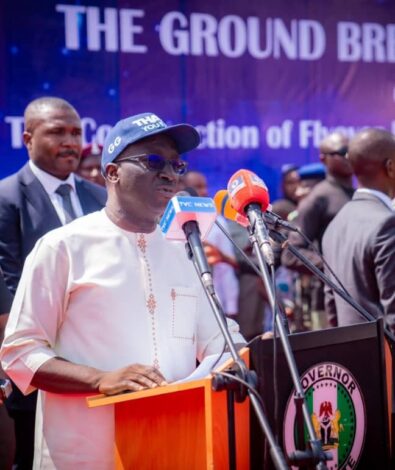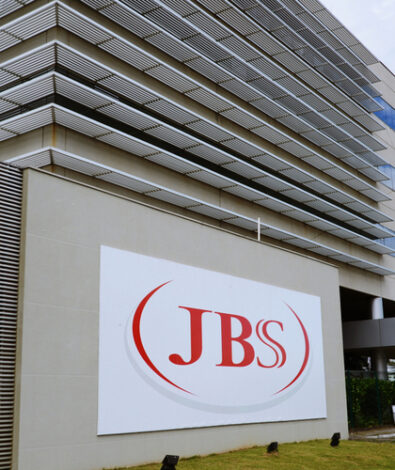Nigeria’s inflation rate expected to surge further in October

Nigeria’s inflation rate for the month of October is expected to rise according to comments from a pool of economists surveyed by Nairametrics.
In September 2024, the headline inflation rose to 32.70% year-on-year (YoY), reflecting a 0.55% increase from August’s rate of 32.15% YoY. This follows a brief period of marginal relief in July and August when inflation eased slightly, dropping to 33.40% YoY in July from 34.19% YoY in June.
The pessimistic view is as a result of factors driving this outlook which include escalating food inflation, surging energy costs, persistent foreign exchange volatility, and an increase in money supply.
Experts and analysts agree that these elements are likely to maintain upward pressure on inflation rates.
What they are saying
1. Dr. Ayodeji Ebo, MD/Chief Business Officer, Optimus by Afrinvest shared on a recent podcast, Dr. Ebo stated,
“This month, we anticipate an increase in inflation on both a year-on-year and month-on-month basis due to several factors:
a. Rising petrol and gas prices, following the full elimination of subsidies by the federal government.
b. Reduced food harvests caused by severe flooding and ongoing crises in key agricultural regions.
c. Exchange rate volatility, expected to affect the prices of imported food items.
d. Higher electricity tariffs, as more consumers move to Band A.
We project a headline inflation rate of 2.55% month-on-month and 33.8% year-on-year for October 2024.”
2. In a conversation with Mr. Olatunde Amolegbe, MD, Arthur Steven Asset Management Limited stated “I believe inflation will rise in October, potentially increasing by 50 to 100 basis points. The lag effect of the fuel price hike in September and rising transportation costs will be key factors. Additionally, the devaluation of the naira will pass through to various products, as Nigeria is heavily import-dependent.”
3. Comments from Samuel Oyekanmi, Research and Insight Lead at Norrenberger Financial Group – commented “I expect a slight uptick in inflation, with my estimate at 33.1%. Key drivers will be the recent increase in energy prices, particularly petrol. Given persistent inflationary pressures, FX volatility, and widening fiscal deficits, I see the CBN maintaining a hawkish stance, considering options to hike or hold rates.”
4. Nairametrics Research also anticipates a rise in October inflation, citing ongoing economic challenges such as higher energy costs, increasing prices of essential food items based on a market survey conducted by Nairametrics, and the continuous devaluation of the naira.
Rising cost of goods and service
1. Rising Energy Costs
Escalating fuel prices and electricity tariffs have increased production costs and pressured logistics expenses. Recent hikes by the Nigerian National Petroleum Corporation (NNPC) raised petrol prices to N1,030 per litre in Abuja and N998 in Lagos, exacerbating inflationary trends.
2. Food Inflation
Food prices, a significant contributor to headline inflation, rose to 37.77% YoY in September 2024. Key factors behind the persistent surge include insecurity, flooding in agricultural regions, and low access to finance for farmers.
A market survey conducted by Nairametrics across four markets in Lagos revealed that the average price of a bag of beans rose by up to 9.5%. Additionally, the average price for some brands of 70g cartons of noodles increased by as much as 19.8%, with similar price hikes observed for Milo refills and other essential food items.
3. Excess Money Supply
Broad money supply (M3) grew 15.16% YoY to N108.97 trillion in September 2024, driven by surges in government spending and domestic and foreign asset expansion. Despite the Central Bank of Nigeria (CBN)’s hawkish measures, including continuous hikes in the Monetary Policy Rate (MPR), excess liquidity persists.
4. FX Volatility
Foreign exchange instability continues to weaken the naira, impacting the cost of imported goods and services. Imported food inflation climbed by 1.20% to 39.51% YoY in September, reflecting continuous currency depreciation.
The CBN has implemented several initiatives to stabilize the naira and control inflation, including resuming dollar sales to Bureau De Change (BDC) operators and clearing $1.5 billion in FX backlog. However, the measures have yet to provide substantial relief as inflation pressures persist.



